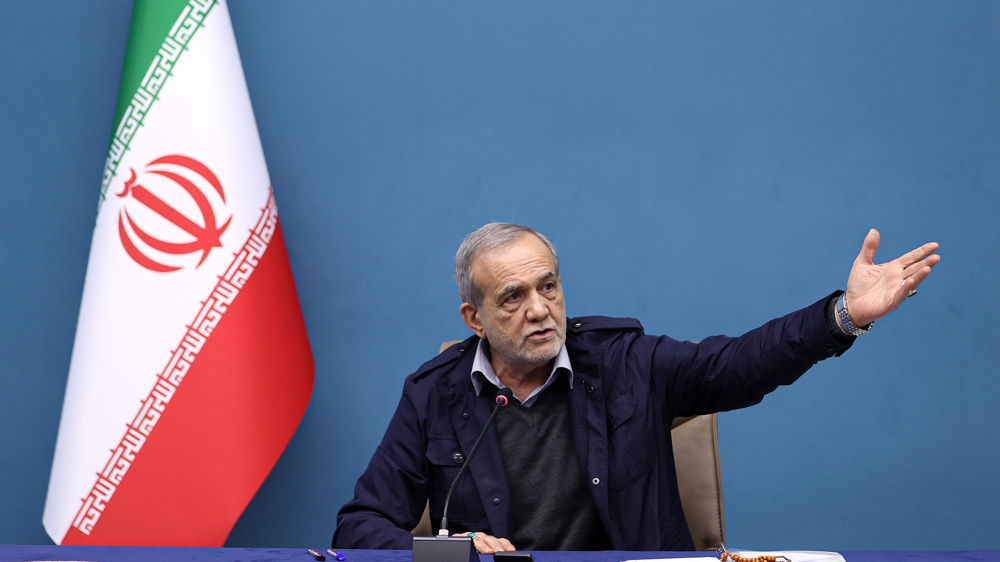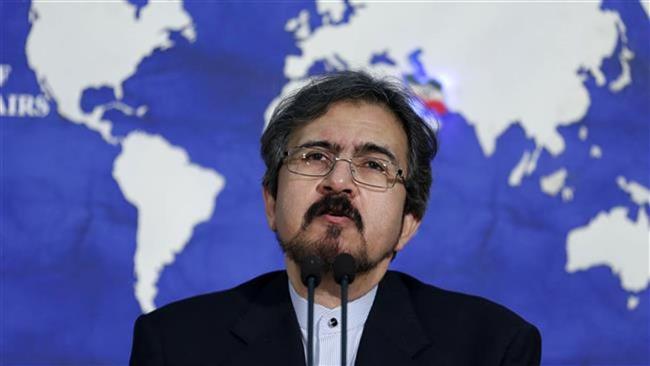World must act on WMD use, proliferation: Iran FM
Iran has lashed out at major world powers for refusing to adopt a firm stance on a chemical attack by executed Iraqi dictator Saddam Hussein during the Iraqi-imposed war, urging the international community to react to any use or proliferation of weapons of mass destruction.
In a message on Saturday, Iranian Foreign Minister Mohammad Javad Zarif marked the 30th anniversary of a deadly chemical attack by Saddam on the city of Sardasht in West Azarbaijan Province.
“The Ministry of Foreign Affairs of the Islamic Republic of Iran … stresses its determination and resolve to counter weapons of mass destruction,” Zarif said.
He urged the international community to fully tap into their potential to counter the production, proliferation and use of weapons of mass destruction and react to the use of or threats to use such weapons by terrorist groups such as Daesh and their regional and extra-regional supporters.
“Those who are today claiming, as part of a suspicious and dangerous scenario, that chemical weapons have been used in Syria are the ones that not only ignored the use of weapons of mass destruction as well as banned chemical weapons against the Iranian soldiers and civilians during the [Iraqi] imposed war against this innocent but proud [Iranian] nation but also were accomplices in Saddam's crimes by arming and fully supporting his criminal regime,” Zarif said.
He added that despite hypocritical and double standard policies of certain countries claiming to advocate human rights, including the US, the Islamic Republic, in line with its principled policy, “strongly condemns any use of or threat to use weapons of mass destruction, including chemical weapons, as a pretext to carry out illegal measures against independent nations and governments.”
The Islamic Republic opposes the use of such arms anywhere, any time and by anybody, the top Iranian diplomat pointed out.
Sardasht was the third populated city in the world, after Japan's Hiroshima and Nagasaki, to be deliberately targeted with weapons of mass destruction.
It was also the first city in the world to be attacked with poisonous gas.
The actual death toll is far greater than announced. Nearly 5,000 residents of the city, which had a population of 20,000 at the time of the attack, are still suffering from serious respiratory and skin ailments and disorders.
Iraq once possessed a huge arsenal of chemical weapons, the production of which was partly facilitated by exports of chemicals from the United States and Western countries.
There is no doubt that Iraq acquired the technology and the materials to develop chemical weapons from the US and a number of Western countries, which not only equipped the Iraqi regime with the tech but also supported it financially.
VIDEO | Bethlehem’s Christmas returns: A message of peace from the birthplace of Christianity
VIDEO | Press TV's news headlines
VIDEO | Protestors call for release of British hunger strikers
VIDEO | Trump’s Nvidia reversal a little...
Israeli airstrikes hit south, east Lebanon as ceasefire violations continue
Iran posthumously promotes General Bagheri assassinated by Israel
Sweida violence reignites as Druze forces clash with HTS militants
Iran develops fast scanning drone capable of ground target identification














 This makes it easy to access the Press TV website
This makes it easy to access the Press TV website